11:41

Inner Mongolia and its vast remoteness present a unique challenge to local officials who have vowed to deliver justice to all of its residents, even if that means putting it on wheels and taking it to people's front doors.
Endless steppes, wild herds, and the occasional yurt are typical sights in the Inner Mongolia Autonomous Region landscape.
This generalized description, albeit incomplete, also speaks to its remoteness. Inner Mongolia is the third largest among provinces and autonomous regions in China, occupying 1,183,000 square kilometers of land, while ranking only 23rd in population with approximately 25 million residents.
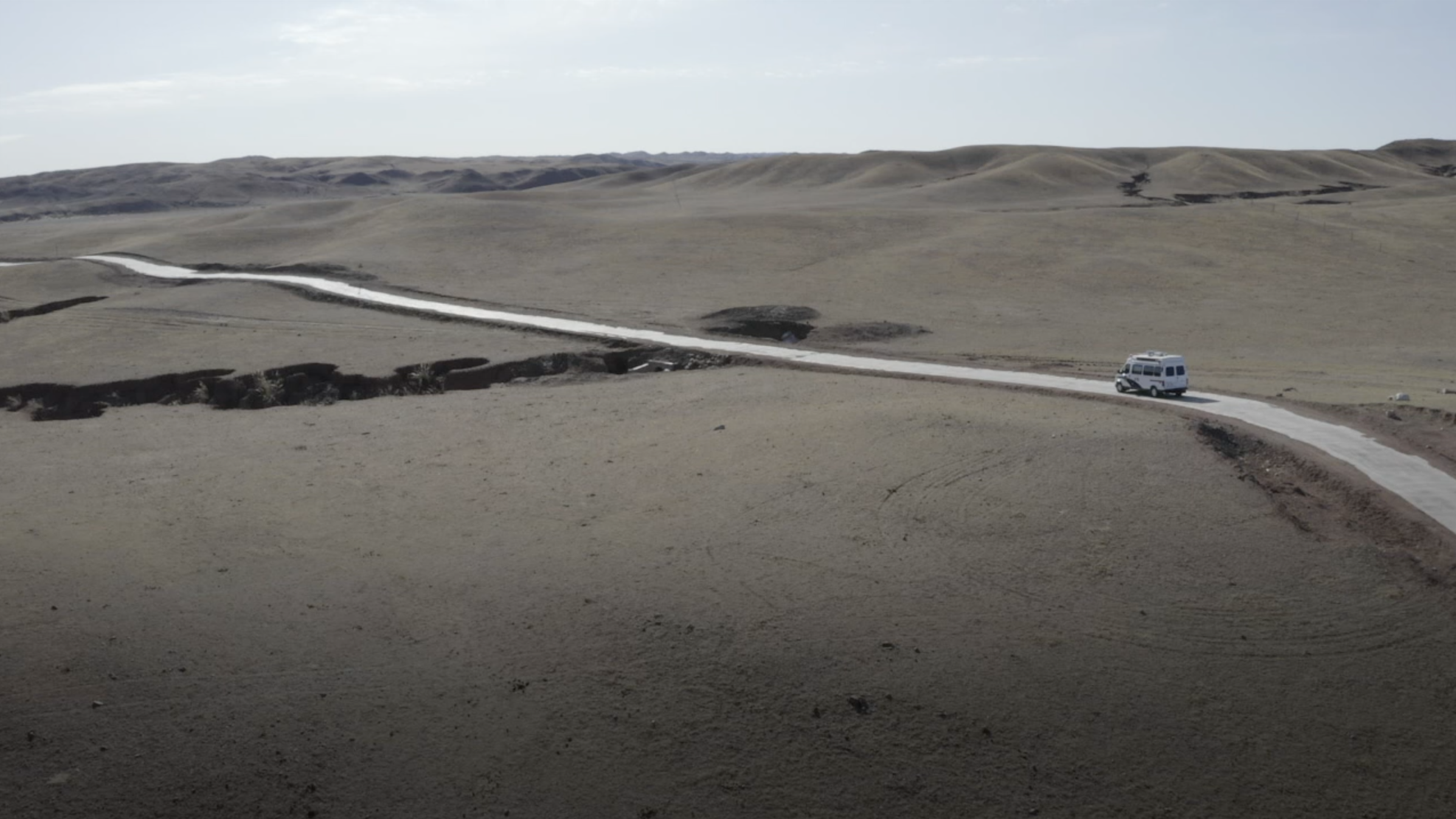
Bayannur's mobile court unit parked outside in a rural community in Inner Mongolia, China. /CGTN Photo
Bayannur's mobile court unit parked outside in a rural community in Inner Mongolia, China. /CGTN Photo
This is particularly important to keep in mind in order to understand the need for the local government to resort to creative ways to serve the public, including the delivery of justice – which takes a quite literal meaning.
CGTN Digital traveled to the prefecture-level city of Bayannur in early December to meet up with Judge Wang Junast who presides over the township's mobile circuit court – a van with the back-end gutted out and transformed into a miniature court room with two wooden benches on each side and a desk where the judge and an assistant can work behind from.
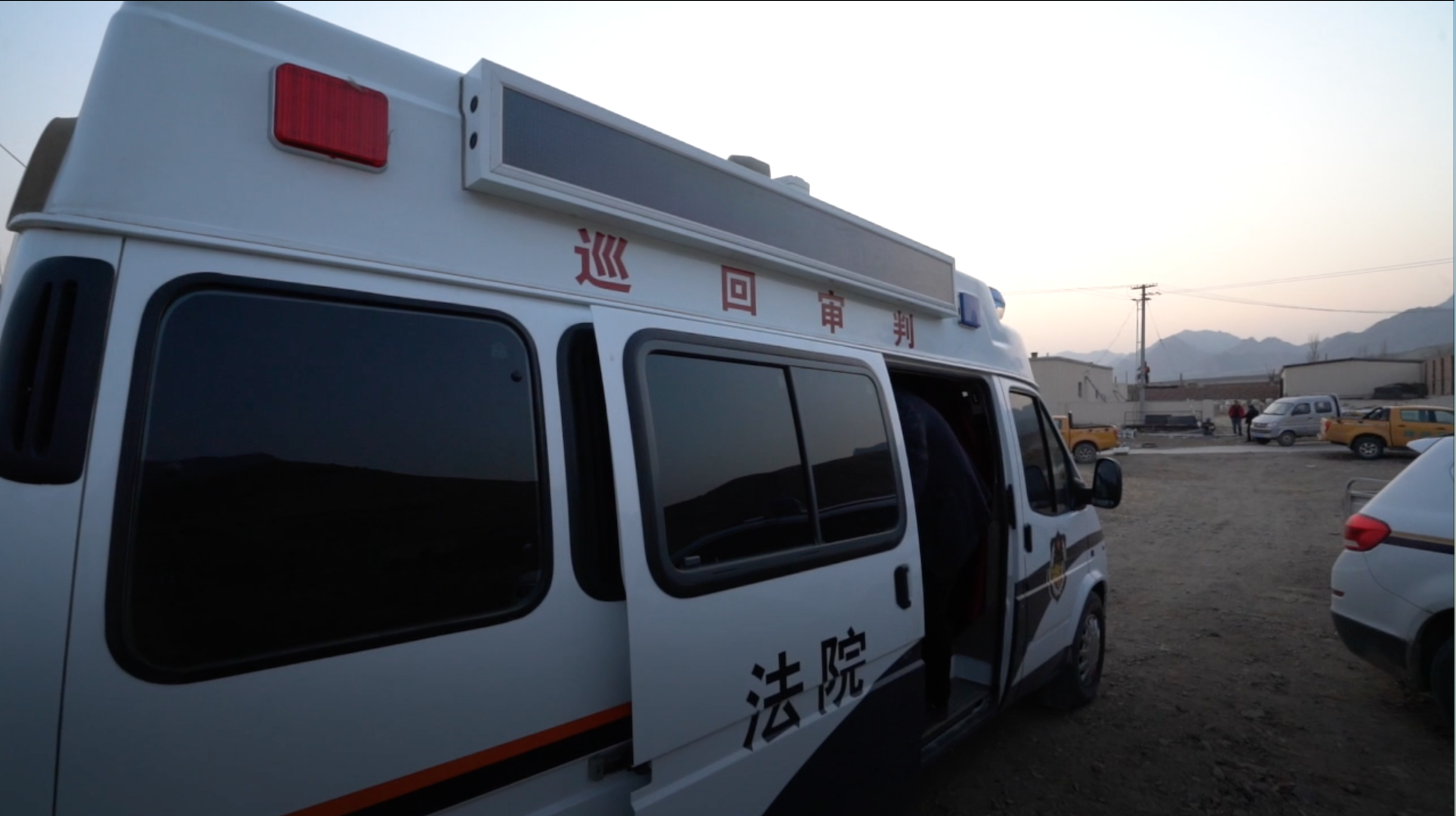
Bayannur's mobile court unit parked outside in a rural community in Inner Mongolia, China. /CGTN Photo
Bayannur's mobile court unit parked outside in a rural community in Inner Mongolia, China. /CGTN Photo
The idea of a court with the ability to move to remote stretches of the region was officially introduced in 2007 but had been a common practice many years earlier as a way to not only provide legal services to some of its poorest and most isolated residents, but also to attend to unresolved litigation. Many of these are between townspeople or between individuals and institutions such as banks and businesses.
Only in certain cases will the mobile court be dispatched, mainly whenever a defendant does not respond to a court notice or a plaintiff's lawsuit and such person does not live in a village where there is a case collection court. Each township has multiple collection courts that forward legal cases to the township's lower courts for judgement or settlement.
Judge Wang agreed to allow me to take over his assistant's job for three days. That meant that at a minimum, I had to learn basic legal terms in Mandarin Chinese, a language I am a novice in; let alone the fact that I would need to rely on my producer's translations to understand both the judge and the villagers. Needless to say, language was the greatest hurdle I needed to overcome.
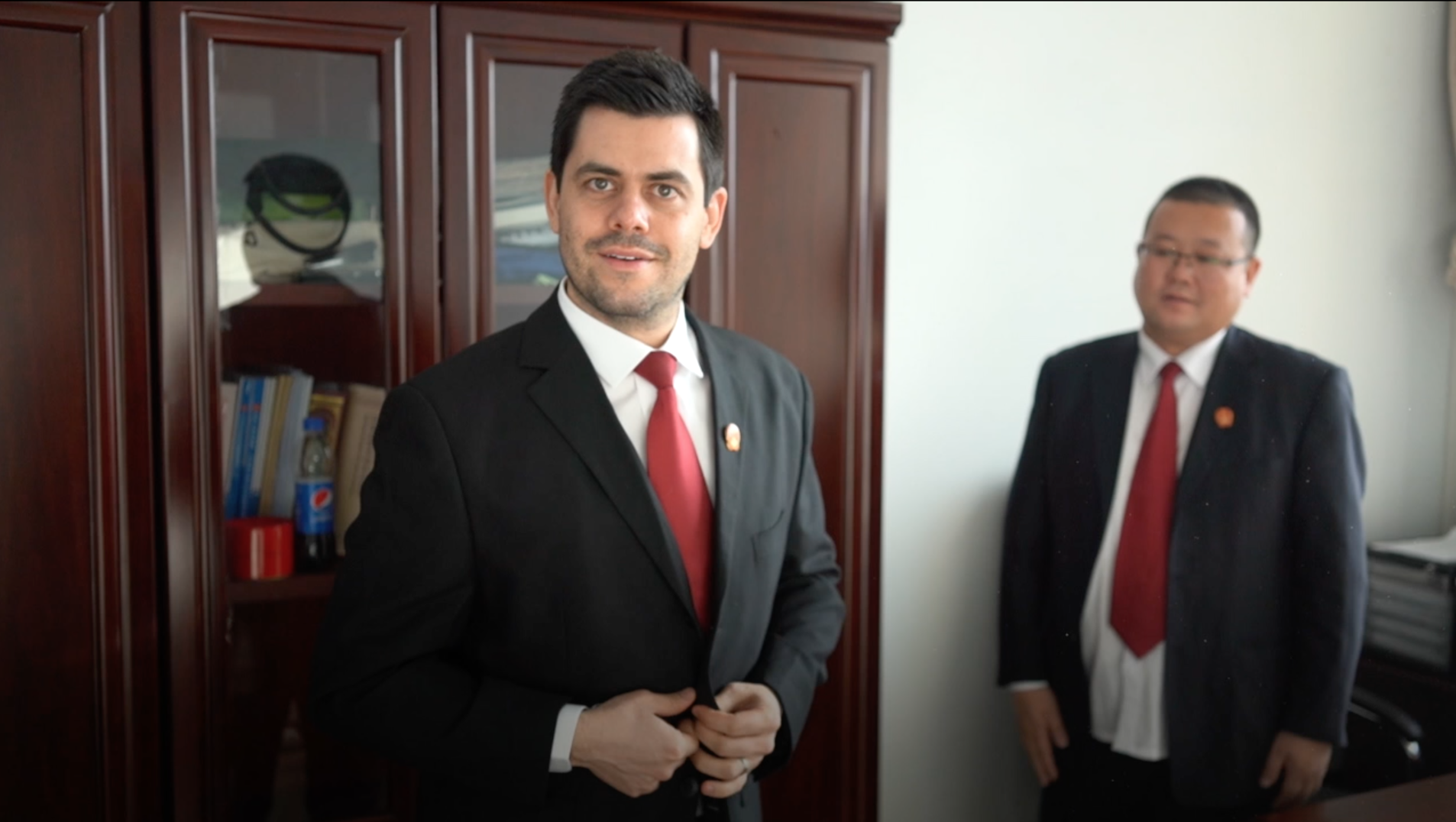
CGTN Digial Reporter Oscar Margain (left) tries on court uniform issued by Bayannur Circuit Court Judge Wang Junast (right) in Inner Mongolia, China. /CGTN Photo
CGTN Digial Reporter Oscar Margain (left) tries on court uniform issued by Bayannur Circuit Court Judge Wang Junast (right) in Inner Mongolia, China. /CGTN Photo
However, a challenge for any person seeking to work in this part of the country would be to also know Mongolian. Many of the people living in rural areas speak a dialect that often combines Mandarin and Mongolian.
We hit the road by the second day on the job, riding in the mobile court unit for over eight hours with outside temperatures dipping below zero, and with few restroom stops or food breaks. It was exhausting. These work shifts on the road can go on well beyond 12 hours, and up to four times a week.
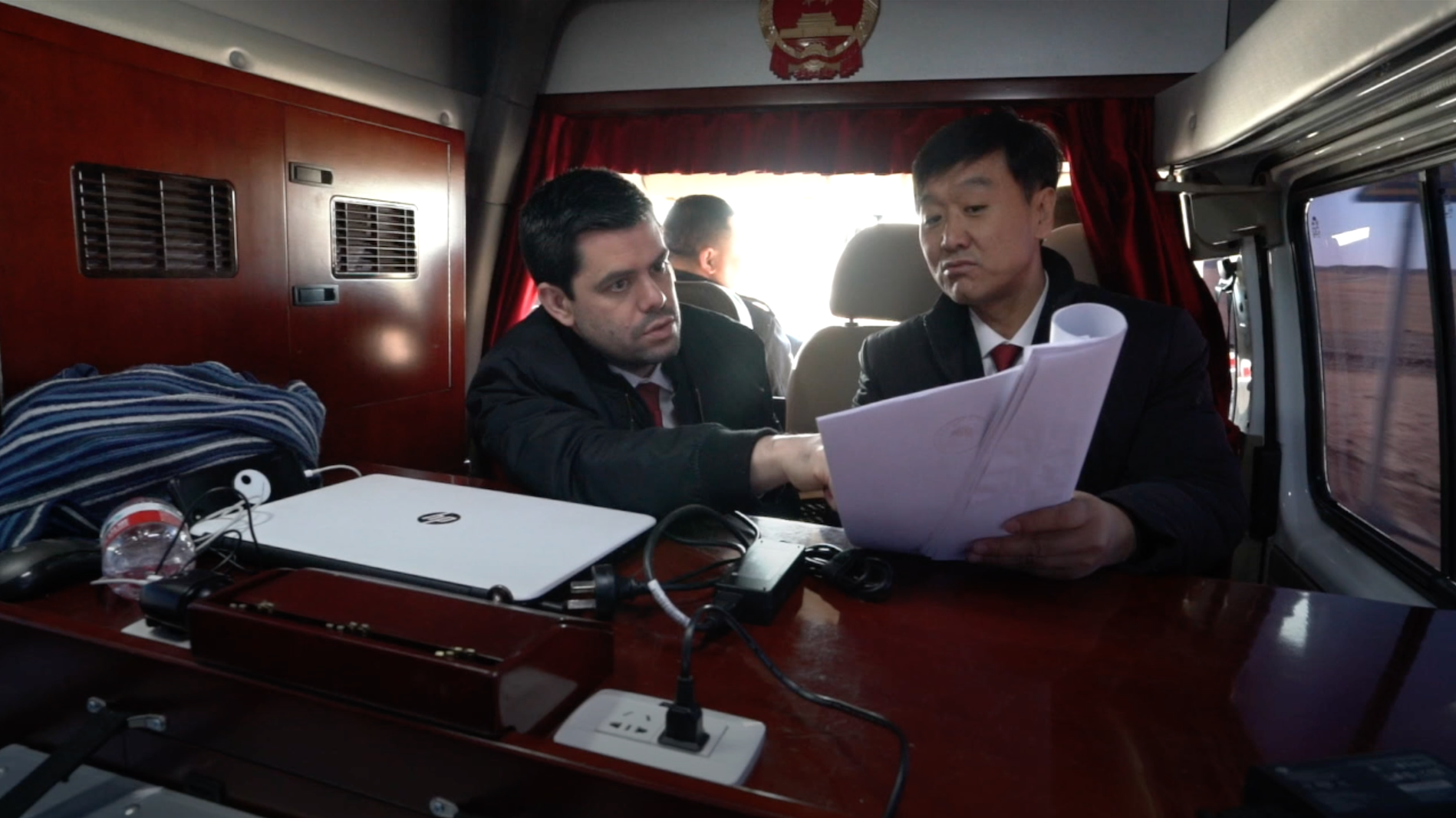
CGTN Digial Reporter Oscar Margain (left) tries on court uniform issued by Bayannur Circuit Court Judge Wang Junast (right) in Inner Mongolia, China. /CGTN Photo
CGTN Digial Reporter Oscar Margain (left) tries on court uniform issued by Bayannur Circuit Court Judge Wang Junast (right) in Inner Mongolia, China. /CGTN Photo
Apart from having to work long hours, judges and their staff must deal with road hazards. We encountered several of them while traveling, including herds of sheep in the middle of the highway, and deteriorated asphalt. I quickly realized what an immense effort it took just to reach a single household – and that is if the person the judge is searching for is even available. Cellphone towers are rarely in sight and landline phones are scarce. Reaching people had to be done by going to them, and driving was the best means of transport – despite the dangers.
Even after all these efforts, some defendants will either refuse or avoid speaking to the judge – a vehicle with police lights showing up to one's property with a couple of suited officials knocking at your door isn't typically a welcoming site. Knowing this, the judge will take his or her time to converse with litigating parties, deescalate a situation and try to broker an agreement. Sometimes the judge will get defendants to respond in writing and convince them to voluntarily show up to a hearing. Other times defendants will choose to settle the case on the spot.
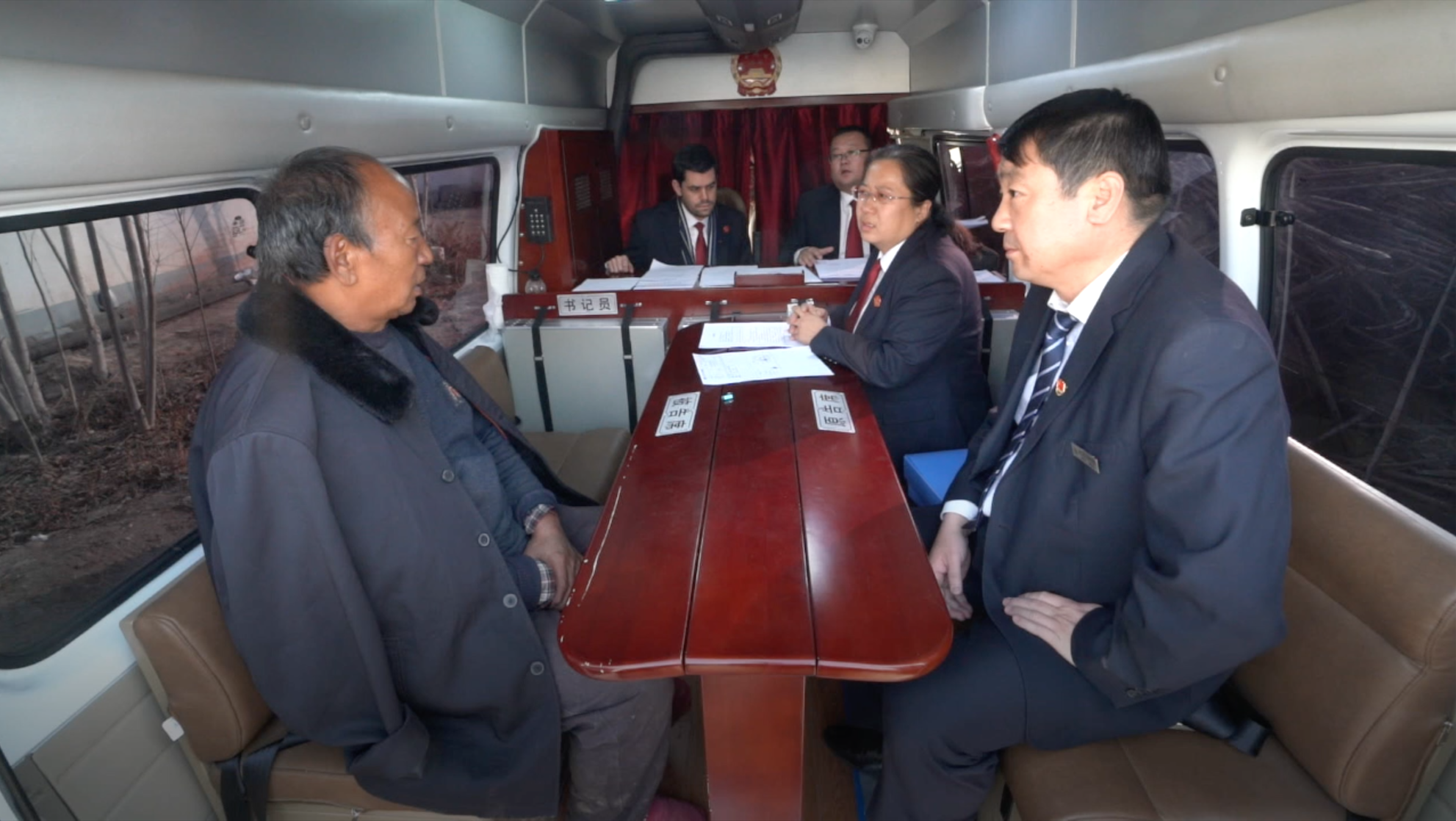
Judge Jia Xiaoyan (center right) brokers an agreement between a plaintiff banker (front right) and a defendant villager (front left) during a debt dispute between parties in Bayannur, Inner Mongolia, China. /CGTN Photo
Judge Jia Xiaoyan (center right) brokers an agreement between a plaintiff banker (front right) and a defendant villager (front left) during a debt dispute between parties in Bayannur, Inner Mongolia, China. /CGTN Photo
It is an approach I did not expect from local authorities. As an outsider, my impression of the Chinese governments is often associated with sternness. It became apparent that, at least at the local level, it is not always the case; educating residents about the legal process is just as important as making judgements, albeit a constant challenge for justice officials.
Jia Xiaoyan, another judge who also works on these remote cases, explained that this soft approach is the most effective way to get parties to come to the table. Punishing non-compliant parties by fining or jailing them often leads to failed and incomplete resolutions, especially when dealing with rural and often poor residents who are not always able to pay up or who are breadwinners in a family.
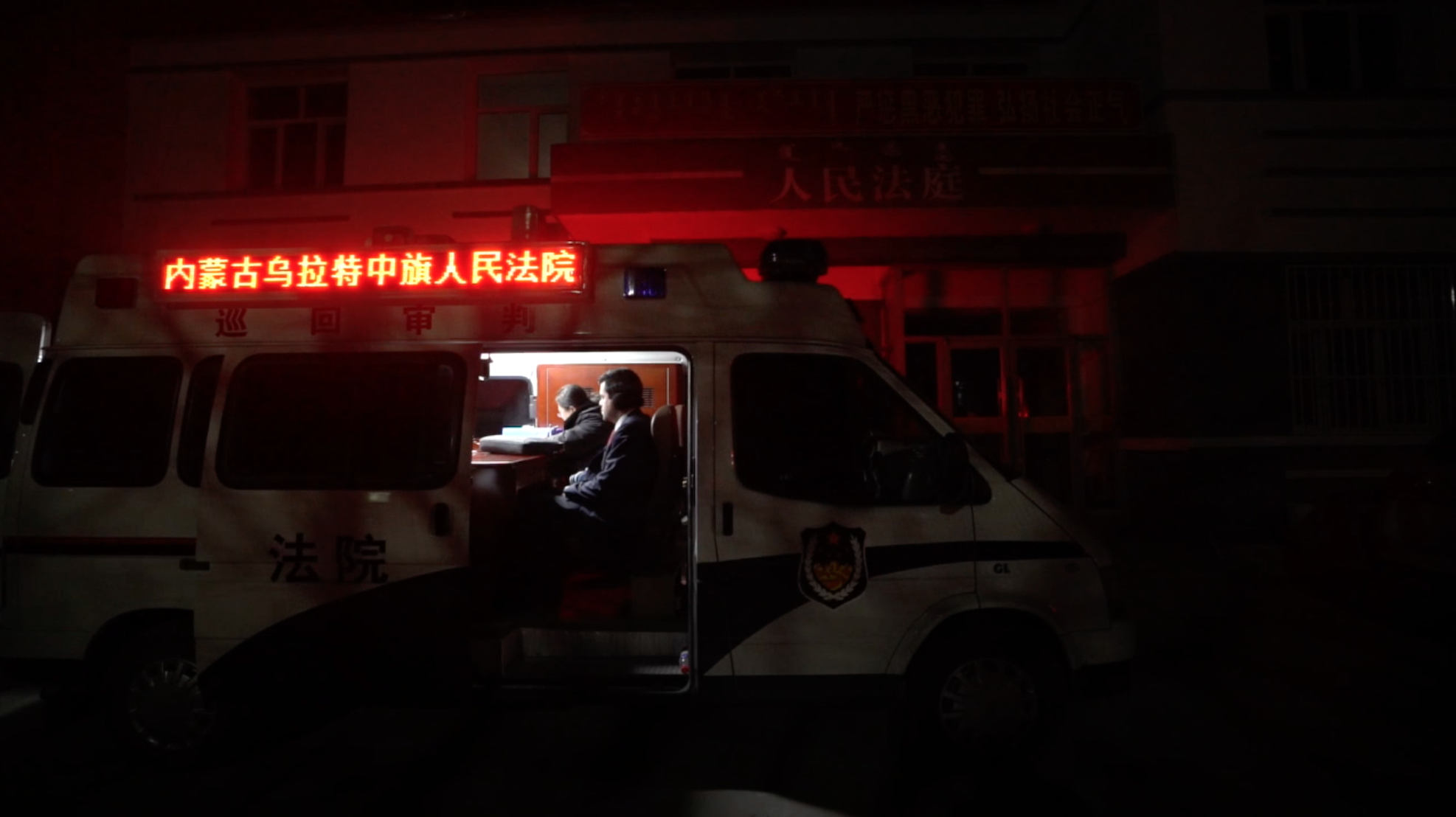
Judge Jia Xiaoyan and CGTN Digital Reporter Oscar Margain sit in the back of the mobile court unit while working a case late at night in Bayannur, Inner Mongolia, China. /CGTN Photo
Judge Jia Xiaoyan and CGTN Digital Reporter Oscar Margain sit in the back of the mobile court unit while working a case late at night in Bayannur, Inner Mongolia, China. /CGTN Photo
This experience has shown me that a one-size-fits-all way of governing isn't always in the best interest of the general population. Inner Mongolia, with its unique set of challenges – including its remoteness, its language, its culture – is just one example of the difficulties in offering public services to all of its people.
Although not perfect, a mobile court is an experiment that both Wang and Jia believe has yielded positive results, an answer to the local government's need to offer justice in underdeveloped corners of China.
Director: Chen Kairan
Filmed by Qi Jianqiang, Guo Yuanheng
Edited by Zhao Yuxiang
Presenter: Oscar Margain
Graphics and Animation: Fan Chenxiao & Wang Li
Chief Editor: Qin Xiaohu & Pei Jian
Project Manager: Chen Kairan
Producer: Wen Yaru
Supervisor: Pang Xinhua